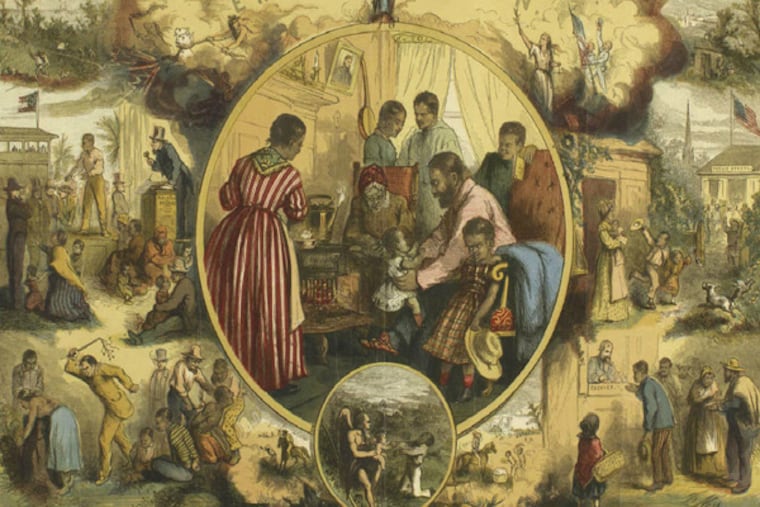Library's collection opens a historical window to African-American life
Over 1,000 images were recently digitized into the Philadelphia Library Company's African Americana online collection, serving as a window into black history in Philadelphia and beyond.

OVER 1,000 images were recently digitized into the Philadelphia Library Company's African Americana online collection, serving as a window into black history in Philadelphia and beyond.
The African Americana database is the end result of a project that was "20 years in the making," one that will give anyone with an Internet connection access to these cultural relics, said Prints Department Associate Curator Erika Piola.
The Philadelphia Library Company has been collecting images since its founding by Benjamin Franklin in 1731, and scholars began collecting photographs, political cartoons and drawings for its African Americana collection in the late 1960s.
The digitization of the collection is part of the Library Company's African-American history program, which began in 2007, Curator of African-American collections Krystal Appiah said.
Piola said the African Americana collection is among the Library Company's strongest catalogs and already one of its most popular for academic researchers. Digitizing those images now provides educational resources to younger students and people who wouldn't normally go to the Library Company. The original images and documents are still stored at the Company's headquarters at 13th and Locust.
Philly artist James Fuller Queen's 1863 chromolithograph drawing of a deceased African-American soldier in his tattered blue Union Army uniform with Lady Liberty reverently proclaiming, "He died for me!" offers a glimpse into the abolitionist sentiment during the Civil War.
But slavery proponents had just as much traction during that period and there are no shortage of images that document that overt racism. The titles of images like "A darktown wedding" are cringe-worthy by our 21st century standards, but Piola said altering the artifact's historical integrity would be "unethical."
"It's part of our history that we can't ignore," she said.
The collection goes back to the antebellum years before the Civil War, then documents class differences of the Victorian era and eventually gives brief glimpses into African-American life in the early 20th century.
Some graphics are more national in scope but many depict a monochromatic Philadelphia with roads just wide enough for horse-drawn carriages or trolleys.
Appiah said the collection gives "a broader range of black history in Philadelphia," aside from the famous abolitionists who dominate historical narratives.
History tends to hide in the minute details, and this collection aims to demonstrate those everyday nuances, while "correcting the invisibility of African Americans in daily life in Philly," Appiah said.